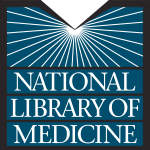- Industry: Library & information science
- Number of terms: 152252
- Number of blossaries: 0
- Company Profile:
The National Library of Medicine (NLM), on the campus of the National Institutes of Health in Bethesda, Maryland, is the world's largest medical library. The Library collects materials and provides information and research services in all areas of biomedicine and health care.
Substance used as an additive to a pesticide formulation in order to reduce the resistance of insects to the pesticide, e.g., an antimetabolite that inhibits metabolic inactivation of the pesticide.
Industry:Biology; Chemistry
Organism unable to synthesize an organic molecule which is required for its growth: when the compound is given to the organism with the other nutrients it requires, growth of the organism may occur.
Industry:Biology; Chemistry
Agent (chemical, physical or biological) which is capable of increasing the incidence of malignant neoplasms, thus causing cancer.
Note: Annex 3 describes the classification systems for carcinogens.
Industry:Biology; Chemistry
Bluish coloration, especially of the skin and mucous membranes and fingernail beds, caused by abnormally large amounts of reduced hemoglobin in the blood vessels as a result of deficient oxygenation.
Industry:Biology; Chemistry
Difference between the incidence of an adverse effect in a treated group (of organisms or a group of exposed humans) and a control group (of the same organisms or the spontaneous incidence in humans).
Industry:Biology; Chemistry
Small circle of DNA (e.g., a plasmid) or modified bacteriophage (bacterial virus) that can carry a segment of foreign DNA into an appropriate host organism (e.g. a bacterial, yeast or mammalian cell).
Industry:Biology; Chemistry
Small circle of DNA (e.g., a plasmid) or modified bacteriophage (bacterial virus) that can carry a segment of foreign DNA into an appropriate host organism (e.g. a bacterial, yeast or mammalian cell).
Industry:Biology; Chemistry
Causing a surface-destructive effect on contact; in toxicology, this normally means causing visible destruction of the skin, eyes, or the lining of the respiratory tract or the gastrointestinal tract.
Industry:Biology; Chemistry
Biological monitoring guidance value set at the 90th percentile of available biological monitoring results collected from a representative sample of workplaces with good occupational hygiene practices.
Industry:Biology; Chemistry
Surrender and devotion to the regular use of a medicinal or pleasurable substance for the sake of relief, comfort, stimulation, or exhilaration which it affords; often with craving when the drug is absent.
Industry:Biology; Chemistry
